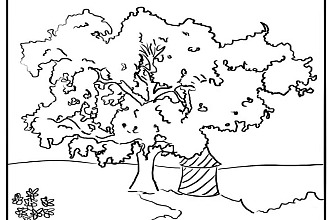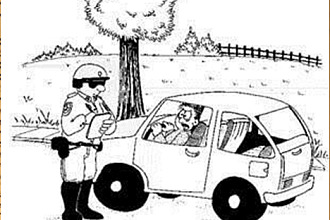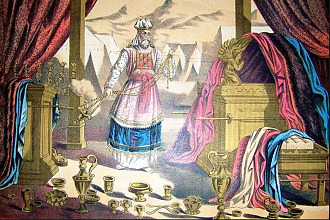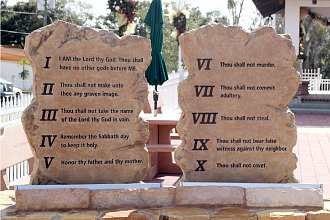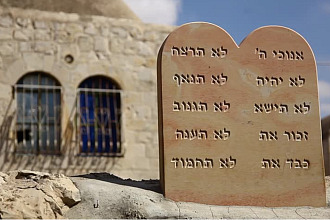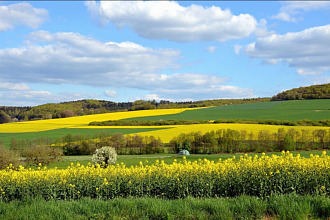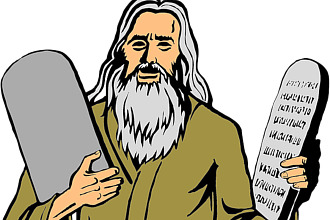There is no reading of the regular Parasha this Shabbat because it is the feast of Sukkoth and there are special readings for the week.
Here are the reading for this period of feast:
1st Day: Oct 3
Torah: Leviticus 22:26-23:44
Maftir: Numbers 29:12-16
Haftara: Zechariah 14:1-21
2nd Day: September 25
Torah: Leviticus 22:26-23:44
Maftir: Numbers 29:12-19
Haftara: 1Kings 8:2-21
3rd Day: September 26
Torah: Numbers 29:17-22
4th Day: September 27
Torah: Numbers 29:20-28
5th Day: September 28
Torah: Numbers 29:23-31
6th Day: September 29
Torah: Exodus 33:12-34:26
Haftara: Ezekiel 38:18-39:16
7th Day: September 30
Torah: Numbers 29:26-34
8th Day Shemini Azeret: October 1
Torah: Deuteronomy 14:22-16:17
Maftir: Numbers 29:35-30:1
Haftara: 1Kings 8:54-9:1
9th Day Simhat Torah: October 2
On Simchat Torah, the Parasha V'Zot
HaBerachah is read in its entirety.
Torah: Deuteronomy. 33:1-34:12
On Simchat Torah, the Jewish people read
also on a second scroll the . rst narration of
the creation to make clear that the Torah
reading is an endless process
Genesis. 1:1-2:3
Maftir: Numbers. 29:35-30:1
Haftara: Joshua. 1:1-18
Overview
Succoth – Feast of Tabernacles
The festival of Succoth commemorates G-d preserving us in the Sinai by, providing manna and water. We built booths to shelter ourselves. In the time of the temple Jews came to Jerusalem on Succoth to offer a portion of the fruit of the land from the autumn harvest to G-d as a thank offering. After offering a part of this portion to G-d, the priests took the remaining portion of this offering for themselves. Thus, Succoth was originally an agricultural festival, and was originally known as "The Feast of Ingathering" (Exodus 23:16, Exodus 34:22). In Vayikra or Leviticus 23:33-34, it states: "G-d spoke to Moses, telling him to speak to the Israelites, as follows: The 15th of this seventh month shall be the festival of Succoth to G-d, (lasting) seven days". Furthermore, in verse 42 & 43, it states: "seven days you are live in booths. This is so that future generations will know that I had the Israelites live in booths when I brought them out of Egypt. I am G-d your L-rd". Thus, the festival of Succoth became a commemoration and reminder of the protection that G-d gave us in the Sinai Desert through shelter in the booths and the giving of food ("manna") and water for sustenance.
"The feast of Succoth you shall keep seven days when you have gathered in from your threshing floor and from your wine press. And you shall rejoice in your feast, you and your son and your daughter and your man servant and your maid servant and the Levite and the stranger and the orphan and the widow that are within your gates. Seven days you shall keep a feast unto the L-rd your G-d in the place which the L-rd shall choose; because the L-rd your G-d will bless you in all your crops and in all your undertakings and you shall be altogether joyful". (Deut 16: 13-15). Three times the Torah commands us to be joyful and rejoice during Succoth, this explains why, more than other holidays, Succoth is called Z'man Simchateinu "Season of our rejoicing." Also, being that Succoth is celebrated after the harvest when Israel can truly rejoice with G-d's blessings. Our sages find a deeper meaning why Succoth is the most joyous holiday. Succoth comes soon after Yom Kippur—day of Atonement. Thus, Jews celebrate the Succoth holiday as equals—completely free of spiritual imperfections. They have been cleansed by G-d, this calls for great rejoicing.
"Are There Any Other Reasons for Celebrating Succoth?"
Yes. The beginning of Succoth is also a time of rejoicing after the sealing and ending of the judgment that was rendered by G-d five days earlier on Yom Kippur.
"Messianic Meanings"
The Sanctuary was the place where G-d wanted to dwell among us. The Torah states, "make a sanctuary for Me, that I will dwell among you." Ex. 25:8. The Jewish prophet Isaiah was told that the Messiah would be called "Immanuel – God with us." In John 1:14 it is written "The Word became flesh and made his dwelling among us."
Succoth in Gan Eden:
Rabbi Sweig affirms that Succoth represents the time period when, after having received atonement on Yom Kippur, we enter the Garden of Eden, i.e. the Succah. This is the reason why the construct and decor of the Succah, as well as the four species which we take in it are made to resemble a garden. Immediately after Yom Kippur we are preoccupied with building the Succah, displaying our desire to attain this elevated level of closeness with Hashem by joining him in the Garden of Eden.
"Succoth and G-d's Protection"
Rabbi Packouz reminds us that The mitzvah of dwelling in the Succah teaches us trust in God. We tend to think that our possessions, our money, our homes, our intelligence will protect us. For 40 years God protected us as we lived in tents surrounded by hostile nations in walled cities. Our possessions are transient -- and our corporeal beings are even more transient than our possessions. Life is vulnerable. Our history has borne out how transient are our homes and communities. No matter how well-established, wealthy and "secure" we have become in a host country, in the end it too has been a temporary dwelling. Our trust must be in God.
"rejoicing 7 days"
The Torah states: we are to rejoice throughout the time of Sukkot. Rabbi Yisroel Meir Kagan, once asked someone how things were going for him. Replied the man, "It wouldn't hurt if things were a bit better." "How can you possibly know that it wouldn't hurt?" responded the Chofetz Chaim. "The Almighty knows better than you. He is merciful and compassionate. If He felt it would be good for you for things to be better, He definitely would have made them better. Certainly things are good for you the way they are." Things are not always the way we wish them to be, but they are always for our good. This awareness will give you an elevated feeling in your life. You have every right to try to improve your situation. However, whenever you do all you can to try, and the situation is still not the way you would wish, work on internalizing the consciousness that the Almighty is doing for you what is in your best interests.
"A Feast of Unity"
Succoth is a holiday which reminds us of the importance of unity. The Torah tells us, "You shall rejoice in your feast, you and your son and your daughter and your man servant and your maid servant and the Levite and the stranger and the orphan and the widow that are within your gates..." emphasizing the concept of unity. In addition, the Torah teaches us that true rejoicing can only be achieved when we are united and include others who are less fortunate, "your man-servant, maid-servant, the Levite, the stranger, the orphan and the widow," in our rejoicing.




